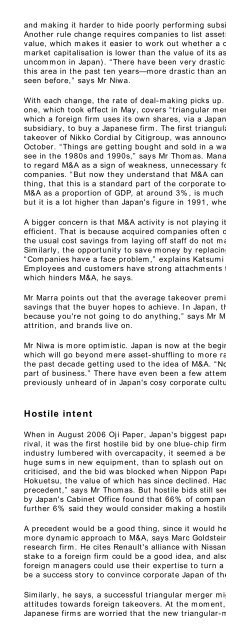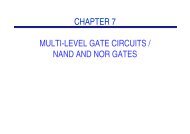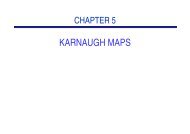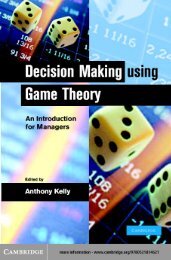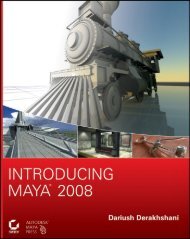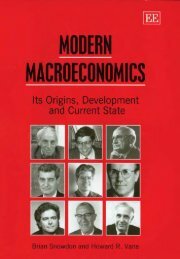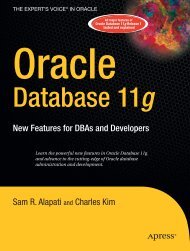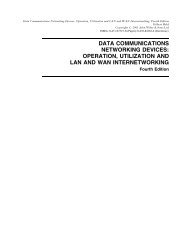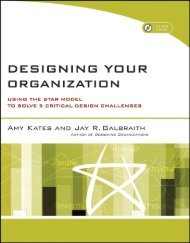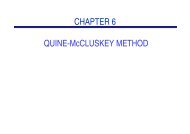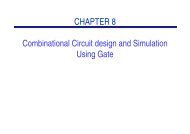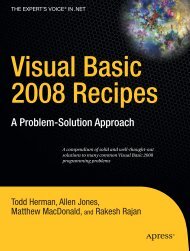The Economist December 1st 2007 - Online Public Access Catalog
The Economist December 1st 2007 - Online Public Access Catalog
The Economist December 1st 2007 - Online Public Access Catalog
- No tags were found...
Create successful ePaper yourself
Turn your PDF publications into a flip-book with our unique Google optimized e-Paper software.
and making it harder to hide poorly performing subsidiaries.Another rule change requires companies to list assets at marketvalue, which makes it easier to work out whether a company'smarket capitalisation is lower than the value of its assets (notuncommon in Japan). “<strong>The</strong>re have been very drastic changes inthis area in the past ten years—more drastic than anythingseen before,” says Mr Niwa.With each change, the rate of deal-making picks up. <strong>The</strong> latestone, which took effect in May, covers “triangular mergers” inwhich a foreign firm uses its own shares, via a Japanesesubsidiary, to buy a Japanese firm. <strong>The</strong> first triangular deal, thetakeover of Nikko Cordial by Citigroup, was announced inOctober. “Things are getting bought and sold in a way we didn'tsee in the 1980s and 1990s,” says Mr Thomas. Managers usedto regard M&A as a sign of weakness, unnecessary for “good”companies. “But now they understand that M&A can be a goodthing, that this is a standard part of the corporate toolbox,” he explains. Admittedly, the average level ofM&A as a proportion of GDP, at around 3%, is much lower than that in America or Britain, at about 10%,but it is a lot higher than Japan's figure in 1991, when it was just 0.4% of GDP.A bigger concern is that M&A activity is not playing its proper part, which is to make companies moreefficient. That is because acquired companies often continue to be run as distinct firms within a firm, andthe usual cost savings from laying off staff do not materialise because Japanese firms rarely sack people.Similarly, the opportunity to save money by replacing two brands with a single one is not always taken.“Companies have a face problem,” explains Katsumi Ihara, the head of Sony's electronics division.Employees and customers have strong attachments to companies and brands and want them to live on,which hinders M&A, he says.Mr Marra points out that the average takeover premium paid in America is 25%, which reflects the costsavings that the buyer hopes to achieve. In Japan, the average premium is zero. “You don't pay anythingbecause you're not going to do anything,” says Mr Marra. Instead, staff numbers are reduced by naturalattrition, and brands live on.Mr Niwa is more optimistic. Japan is now at the beginning of a new era of “fully fledged M&A”, he says,which will go beyond mere asset-shuffling to more radical restructuring. Japanese managers have spentthe past decade getting used to the idea of M&A. “Now, at last, M&A is not something odd but a normalpart of business.” <strong>The</strong>re have even been a few attempts at hostile takeovers, something that waspreviously unheard of in Japan's cosy corporate culture.Hostile intentWhen in August 2006 Oji Paper, Japan's biggest paper firm, tried to take over Hokuetsu Paper, a smallerrival, it was the first hostile bid by one blue-chip firm for another. Oji's bid made commercial sense: in anindustry lumbered with overcapacity, it seemed a better idea to buy Hokuetsu, which had just investedhuge sums in new equipment, than to splash out on updated equipment itself. But Oji's move was widelycriticised, and the bid was blocked when Nippon Paper, the industry's number two, bought a stake inHokuetsu, the value of which has since declined. Had Oji's bid succeeded, “it would have set a fantasticprecedent,” says Mr Thomas. But hostile bids still seem to be regarded as taboo—though a recent surveyby Japan's Cabinet Office found that 66% of companies said they were interested in pursuing M&A, and afurther 6% said they would consider making a hostile bid if necessary.A precedent would be a good thing, since it would help to convince Japanese firms of the merits of amore dynamic approach to M&A, says Marc Goldstein of Institutional Shareholder Services (ISS), aresearch firm. He cites Renault's alliance with Nissan, which convinced Japanese bosses that selling a bigstake to a foreign firm could be a good idea, and also illustrated, in the person of Carlos Ghosn, thatforeign managers could use their expertise to turn a Japanese company around. “<strong>The</strong>re always needs tobe a success story to convince corporate Japan of the merits of foreign practices,” says Mr Goldstein.Similarly, he says, a successful triangular merger might changeattitudes towards foreign takeovers. At the moment, manyJapanese firms are worried that the new triangular-merger law


